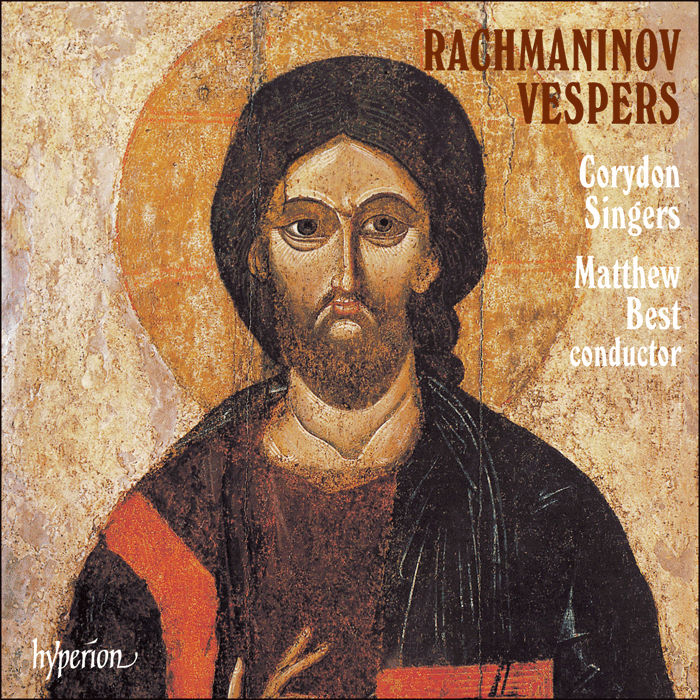Rachmaninov: Vespers
Corydon Singers, Matthew Best (conductor)
CDA66460
Although generally known as the ‘Vespers’ in English, Rachmaninov’s great contribution to the history of Russian sacred music is, in fact, a setting of the services of Vespers, Matins and the First Hour as they are celebrated in the Russian Orthodox Church and known as the Vsenoshchnoe Bdenie, the ‘All-Night Vigil’. The services of Matins and the First Hour are those of the following day, sung directly after Vespers (which is begun approximately at sunset) ‘by anticipation’. This procedure is characteristic of the Russian rather than the Greek Church, since in the latter the Divine Liturgy is celebrated directly after Matins, served early in the morning. In cathedral and parish churches the Vigil is generally celebrated in an abbreviated form (lasting, nevertheless, for two hours or more) on Saturdays and the eves of major feasts – it is only in monasteries that it is celebrated fully, thus meriting its name.
Rachmaninov had always had a rather ambiguous relationship with the Church (this had to be overlooked when in 1903 he was married in church), but he was far from irreligious. The same, indeed, may be said of Tchaikovsky, whose legal victory over the publication of his own church music had opened the way for a great expansion of sacred composition in Russia. Church music and ritual had been of interest to Rachmaninov in more than one work: most obviously there is his interest in Russian church bells, particularly evident in his cantata The Bells, and in the ‘Dies irae’ chant from the Latin rite, which appears in several works. Russian chant appears in the First Symphony as a means of generating thematic material, and also in the Symphonic Dances wherein he also quoted ‘Blagosloven esi, Gospodi’ from his Vigil Service.

